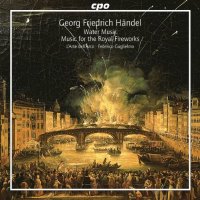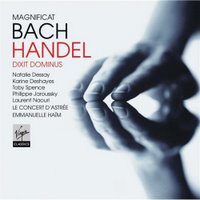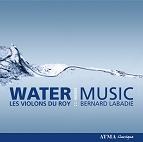Knowlton Festival 2009: Les Violons du Roi with Guilmette a Royal Treat!
 The excitement of the opening weekend has died down and the crowds have thinned but the Knowlton Festival (Québec) continues with music-making of the highest order. Our own period music specialist ensemble, Les Violons du Roy, based in Québec City, took the stage last night and filled the air with the sounds of Handel.
The excitement of the opening weekend has died down and the crowds have thinned but the Knowlton Festival (Québec) continues with music-making of the highest order. Our own period music specialist ensemble, Les Violons du Roy, based in Québec City, took the stage last night and filled the air with the sounds of Handel.In a festival that focuses on bel canto, it makes perfect sense to give some exposure to vocal literature which was an important forerunner. With the participation of Les Violons du Roy, organizers have significantly broadened the repertoire covered by the Knowlton Festival. I hope we will hear more baroque music next year.
 Historically informed performances are now fairly commonplace, but Les Violons du Roy have been at it for nearly twenty-five years and their authority in this repertoire is palpable. Much of the credit must go to its conductor Bernard Labadie (photo: right). He gives us not only scholarly work but joyous, exciting and often surprising performances. No wonder he is now in demand all over the world as a guest conductor.
Historically informed performances are now fairly commonplace, but Les Violons du Roy have been at it for nearly twenty-five years and their authority in this repertoire is palpable. Much of the credit must go to its conductor Bernard Labadie (photo: right). He gives us not only scholarly work but joyous, exciting and often surprising performances. No wonder he is now in demand all over the world as a guest conductor.In addition to his early music expertise, Labadie has served a long apprenticeship in the opera house and will make his debut at the Met later this year leading performances of Mozart’s Die Zauberflöte. He is a fine all-round musician and the whole world is now discovering how good he is.
In praising Labadie I don’t mean to underestimate the importance of his players. There were twenty-five of them in the Chapiteau (tent) and each one of them made important contributions. Best of all, they functioned as a well-rehearsed ensemble. They had obviously taken great care to coordinate their phrasing, dynamics, length of the notes and bow strokes. The heart of this orchestra is the string section and it demonstrated a whole range of musical virtues from subtlety to virtuosity. Yes, this is a remarkable band of musicians. One wished their names had appeared in the programme!
The major work this evening was Handel’s Water Music. This music was written in 1717 for King George I to enjoy as he sailed down the Thames. Some of it is appropriately regal and festive but there are also more intimate pieces. The orchestration is one of the glories of the work – actually three suites joined together – and Les Violons du Roy made the most of its opportunities. We had a sensuous oboe solo, a perky recorder solo, lusty horn fanfares and trills and exciting timpani riffs.
As Labadie pointed out in his introductory remarks, the Water Music is rarely played complete. The reason, one might suggest, is that it can wear out its welcome - but not in this performance. Labadie not only varied dynamics within movements; he also dared to speed up and slow down when he thought the music would benefit from such alterations. Handel left no such instructions for the Water Music, but by now Labadie feels so confident in this style that he can permit himself imaginative embellishments. It’s called ‘interpretive freedom’ and in going down this road, Labadie is following in the footsteps of early music pioneers of the order of Harnoncourt, Christie and Gardiner.
Incidentally, Labadie and Les Violons du Roy have made a recording of the Water Music for Analekta.
 In the first half of the programme, we heard an orchestral suite from Armida and a group of arias from Handel’s operas Alcina and Giulio Cesare. The fine soprano soloist was Hélène Guilmette (photo: right). Her youthful, lyric voice was well-suited to the music and she tossed off the ornamentation with the greatest of ease. I must confess that I prefer a more darkly romantic interpretation of ‘Piangerò la sorte mia.” This performance was a little too artful for my taste and the choice of ornamentation ornate rather than expressive. Still, I came away from these performances looking forward to hearing more from Guilmette.
In the first half of the programme, we heard an orchestral suite from Armida and a group of arias from Handel’s operas Alcina and Giulio Cesare. The fine soprano soloist was Hélène Guilmette (photo: right). Her youthful, lyric voice was well-suited to the music and she tossed off the ornamentation with the greatest of ease. I must confess that I prefer a more darkly romantic interpretation of ‘Piangerò la sorte mia.” This performance was a little too artful for my taste and the choice of ornamentation ornate rather than expressive. Still, I came away from these performances looking forward to hearing more from Guilmette.As an aside, I feel compelled to point out once again that in a festival, the focus of which is vocal music, it is a gross oversight not to provide the audience with texts and translations either in the printed programme or as surtitles.
Coming Next: Tonight’s concert in the Chapiteau features the wonderful pianist Stephen Kovacevich making a rare appearance in Canada. He will play Beethoven’s massive Diabelli Variations. Tomorrow night Nagano and the OSM resume their Brahms cycle with the Third Symphony. Joining them will be American baritone Thomas Hampson in a group of songs by Richard Strauss. For more information visit the festival website.
Paul E. Robinson is the author of Herbert von Karajan: the Maestro as Superstar, and Sir Georg Solti: His Life and Music, both available at Amazon.com.
Labels: Bernard Labadie, Festival de Knowlton, handel, Hélène Guilmette, Knowlton Festival, Les Violons du Roi, opera, Water Music
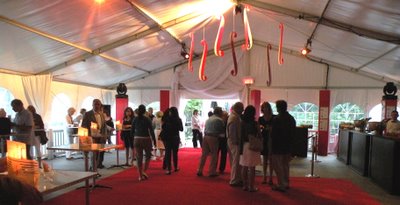 Knowlton was awash with tourists and classical music-lovers this weekend. The tourists are a familiar sight in these parts, drawn by the beauty of the location, the antique stores and boutiques selling lavender products and a tempting variety of other country fare. The music-lovers, however, are a relatively new phenomenon, attracted by the Knowlton Festival. On the basis of what I have heard so far I don’t think they would be disappointed.
Knowlton was awash with tourists and classical music-lovers this weekend. The tourists are a familiar sight in these parts, drawn by the beauty of the location, the antique stores and boutiques selling lavender products and a tempting variety of other country fare. The music-lovers, however, are a relatively new phenomenon, attracted by the Knowlton Festival. On the basis of what I have heard so far I don’t think they would be disappointed. 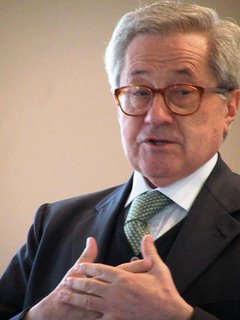
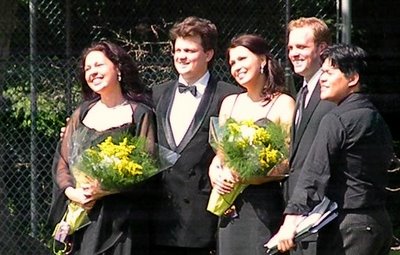
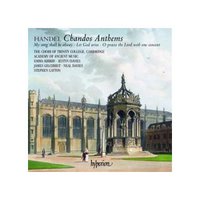
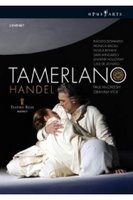
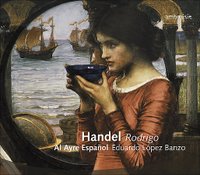 María Bayo, Sharon Rostorf-Zamir, Anne-Catherine Gillet, soprano; Maria Riccarda Wesseling, mezzo-soprano; Max Emanuel Cencic, countertenor; Kobi van Rensburg, tenor; Al Ayre Español/Eduardo Lopez Banzo
María Bayo, Sharon Rostorf-Zamir, Anne-Catherine Gillet, soprano; Maria Riccarda Wesseling, mezzo-soprano; Max Emanuel Cencic, countertenor; Kobi van Rensburg, tenor; Al Ayre Español/Eduardo Lopez Banzo